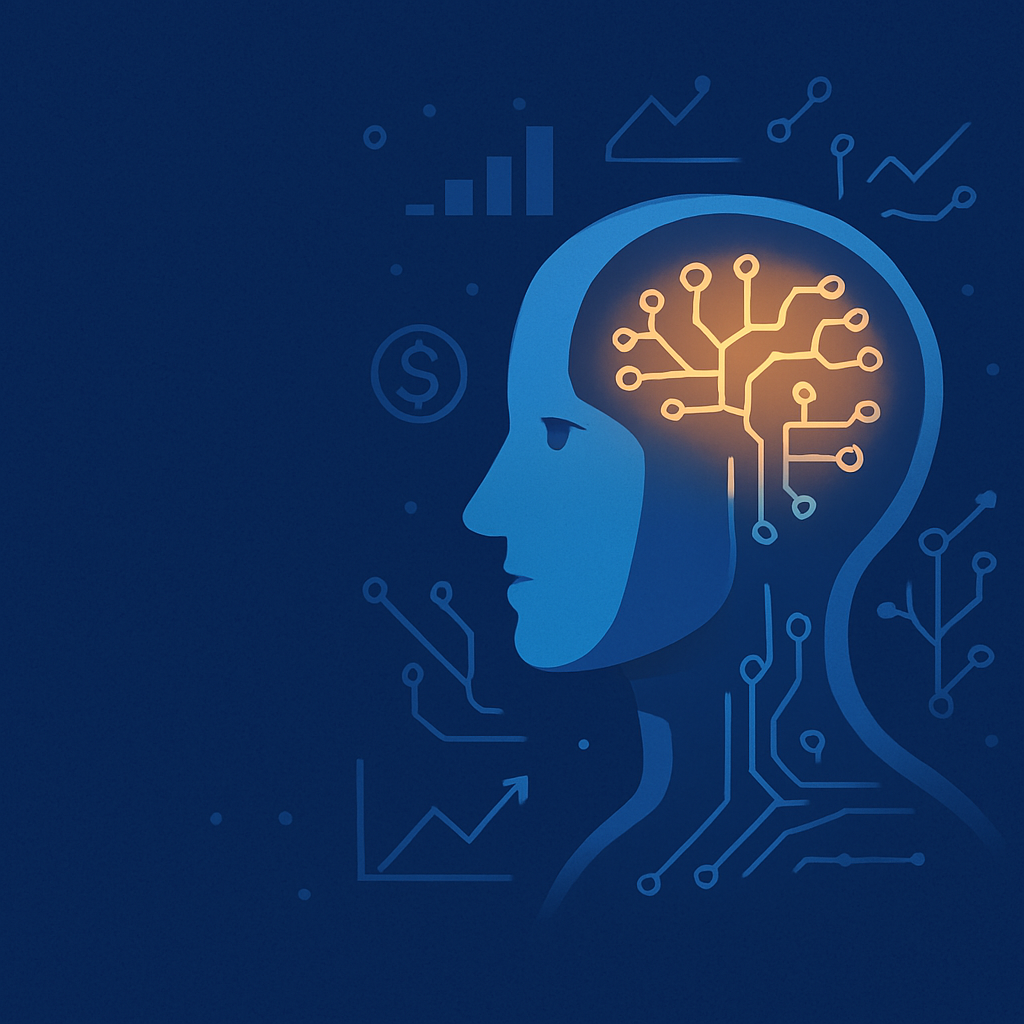
The Future of AI in Finance: Automation or Assistance? Navigating the Next Frontier
Introduction: The Intersection of AI and Finance
In recent years, artificial intelligence (AI) has permeated every sector of the economy, and the finance industry is no exception. From automating routine tasks to providing decision-making support, AI is poised to revolutionize how financial services are delivered. However, as the capabilities of AI evolve, an important question arises: will AI primarily serve as an agent of automation, or will it act as a tool for human assistance? Understanding this distinction is crucial for stakeholders in the financial industry as they prepare for the next era of AI integration.
As we look into the future, it’s evident that AI is both a powerful tool for streamlining financial processes and a collaborative partner that enhances human decision-making. This blog post will explore the potential roles of AI in finance, weighing the benefits and challenges of automation versus assistance. By the end, you’ll gain a clearer picture of how AI is shaping the future of the financial world.
1. The Rise of AI in Financial Services
The financial services sector has always been ripe for innovation, and AI is playing a central role in this transformation. Over the past decade, AI-driven technologies such as machine learning (ML), natural language processing (NLP), and predictive analytics have gained significant traction in applications ranging from risk assessment to customer service. These technologies enable finance professionals to make more informed decisions, minimize errors, and improve efficiency.
AI’s adoption has been particularly beneficial in areas that require the processing of large volumes of data. In risk management, for instance, machine learning algorithms can quickly analyze historical data and identify potential threats in real-time. Similarly, AI-powered chatbots and virtual assistants have revolutionized customer support, offering 24/7 service and instant responses to customer inquiries. These early implementations are just the beginning, as AI’s role continues to expand across the industry.
2. AI as a Catalyst for Automation
One of the most prominent ways AI is transforming finance is through automation. Many financial institutions are leveraging AI to automate repetitive tasks, such as data entry, transaction processing, and report generation. Automation allows organizations to streamline operations, reduce human error, and cut operational costs. Moreover, AI can perform these tasks at a speed and accuracy level that far surpasses human capabilities.
However, automation is not just limited to back-office functions. AI is increasingly being used in areas like algorithmic trading, where it can execute trades at lightning speed based on real-time market data. This has led to a more efficient and faster-paced market environment. By taking over routine and time-consuming tasks, AI frees up human workers to focus on more strategic and creative aspects of their roles.
3. The Human Element: AI as an Assistant
While automation plays a significant role in enhancing operational efficiency, the human element in finance remains indispensable. AI’s most exciting potential lies in its ability to act as an assistant, complementing human judgment and enhancing decision-making. For example, AI can provide analysts with valuable insights by processing complex datasets and identifying trends that may not be immediately apparent.
Furthermore, AI assistants can help professionals stay updated on the latest market developments, regulatory changes, and emerging risks. This partnership allows humans to focus on strategic thinking, relationship building, and creative problem-solving while relying on AI to provide data-driven recommendations. By acting as a supportive tool rather than a replacement, AI helps professionals work smarter, not harder.
4. Decision Support Systems: AI in Strategic Planning
AI’s role in decision support systems is another area where it shines. In the fast-paced and often volatile world of finance, making informed decisions is crucial. AI-powered platforms can assist finance leaders in evaluating various scenarios, projecting future outcomes, and identifying potential risks and opportunities. These systems use vast amounts of data and advanced algorithms to simulate different strategies, enabling finance professionals to make well-informed decisions in real time.
Furthermore, AI can help optimize investment portfolios by analyzing historical performance, market trends, and risk factors. By leveraging AI to generate insights, financial advisors can make personalized recommendations tailored to their clients’ unique needs. This level of precision and customization is impossible for humans to achieve alone, highlighting the value of AI as a decision-support tool.
5. Financial Security: AI’s Role in Protecting Assets
Security is a top concern in the financial industry, especially with the increasing sophistication of cyberattacks. AI is playing an instrumental role in enhancing financial security by providing advanced fraud detection and risk management systems. Machine learning algorithms can analyze patterns of behavior and identify anomalies that may indicate fraudulent activity, helping financial institutions respond quickly and prevent significant losses.
Moreover, AI can automate the process of monitoring transactions and flagging suspicious activities in real time. By constantly scanning for irregularities, AI reduces the chances of human error and delays in detection. As financial institutions adopt AI-based security measures, they can offer a more secure environment for their clients and reduce the risks associated with cybercrime.
6. Redefining Job Roles in Finance
As AI continues to permeate the finance industry, there is an ongoing debate about its impact on employment. While some fear that automation will replace human workers, others argue that AI will redefine job roles rather than eliminate them. In reality, AI is expected to transform the workforce by creating new opportunities and requiring a shift in skillsets.
For instance, AI can automate routine tasks, allowing employees to focus on higher-value activities such as strategic planning, client relationship management, and creative problem-solving. Finance professionals will increasingly be required to work alongside AI systems, leveraging their insights and recommendations to make better decisions. As a result, there will be a growing demand for individuals with expertise in both finance and technology, particularly in areas such as AI implementation, data analytics, and cybersecurity.
7. Ethical Considerations and AI in Finance
As with any technological advancement, the use of AI in finance raises important ethical questions. One of the primary concerns is the potential for bias in AI algorithms. If the data fed into an AI system is biased or incomplete, the recommendations or decisions generated by the system could perpetuate those biases. In finance, this could have serious implications, especially in areas such as credit scoring, loan approvals, and investment advice.
To address these concerns, financial institutions must ensure that their AI systems are transparent, fair, and accountable. This includes implementing measures to mitigate bias, regularly auditing algorithms, and ensuring that human oversight is maintained. Additionally, data privacy is a critical issue, as AI systems often rely on vast amounts of personal and financial data. Financial institutions must be vigilant in safeguarding this sensitive information and complying with privacy regulations.
8. The Future Outlook: Collaboration Between Humans and AI
Looking ahead, it’s clear that AI will not replace humans in finance but rather enhance human capabilities. The future of AI in finance is one of collaboration, where AI acts as a powerful assistant, helping finance professionals make better decisions, improve efficiency, and ensure security. By automating repetitive tasks and providing data-driven insights, AI allows humans to focus on the aspects of their work that require creativity, intuition, and interpersonal skills.
As AI continues to evolve, its integration into finance will become more seamless and widespread. Financial institutions will need to adapt to this changing landscape by investing in AI technologies and upskilling their workforce to work alongside these advanced tools. The key to success will be striking a balance between automation and human assistance, creating a hybrid model that maximizes the strengths of both.
9. SageMaster: A Game-Changer in AI-Driven Finance Solutions
One of the most innovative tools currently shaping the future of AI in finance is SageMaster, a cutting-edge AI platform designed to optimize financial decision-making, enhance operational efficiency, and drive deeper insights. Developed to cater to the complexities of modern financial markets, SageMaster integrates advanced machine learning algorithms, predictive analytics, and real-time data processing to assist both financial professionals and institutions in navigating the intricacies of finance. This section will delve into how SageMaster stands at the forefront of AI in finance and its role in shaping the future of the industry.
SageMaster serves as an example of how AI can seamlessly blend automation with human expertise. Unlike traditional systems that rely heavily on pre-set algorithms or rigid frameworks, SageMaster uses adaptive learning techniques to refine its processes over time. This means that the more data it processes, the smarter and more accurate its predictions become. Financial analysts, traders, and advisors leveraging SageMaster gain access to a wealth of actionable insights, allowing them to make well-informed decisions faster and more accurately than ever before.
What sets SageMaster apart is its ability to analyze not only historical data but also real-time market trends, regulatory changes, and global economic shifts. This holistic approach allows users to anticipate market movements, assess potential risks, and optimize investment portfolios with unprecedented precision. In essence, SageMaster acts as both a powerful assistant and a trusted advisor, complementing human decision-making with its data-driven capabilities. With its user-friendly interface and robust analytic features, SageMaster is helping financial institutions harness the full potential of AI to achieve greater outcomes and success in an increasingly complex and fast-paced environment.
9. Conclusion: Embracing the Future of AI in Finance
The future of AI in finance is undeniably exciting, with the potential to reshape the industry in profound ways. While automation will undoubtedly play a significant role, AI’s true potential lies in its ability to assist and collaborate with human professionals. By acting as both a catalyst for efficiency and a decision-support tool, AI will help financial institutions navigate the complexities of the modern economy.
As we look to the future, the integration of AI in finance is not a matter of if, but when. The key for organizations will be to embrace this transformation, adapt to new technologies, and foster a culture of collaboration between humans and machines. By doing so, they will be well-positioned to thrive in an increasingly AI-driven world.

